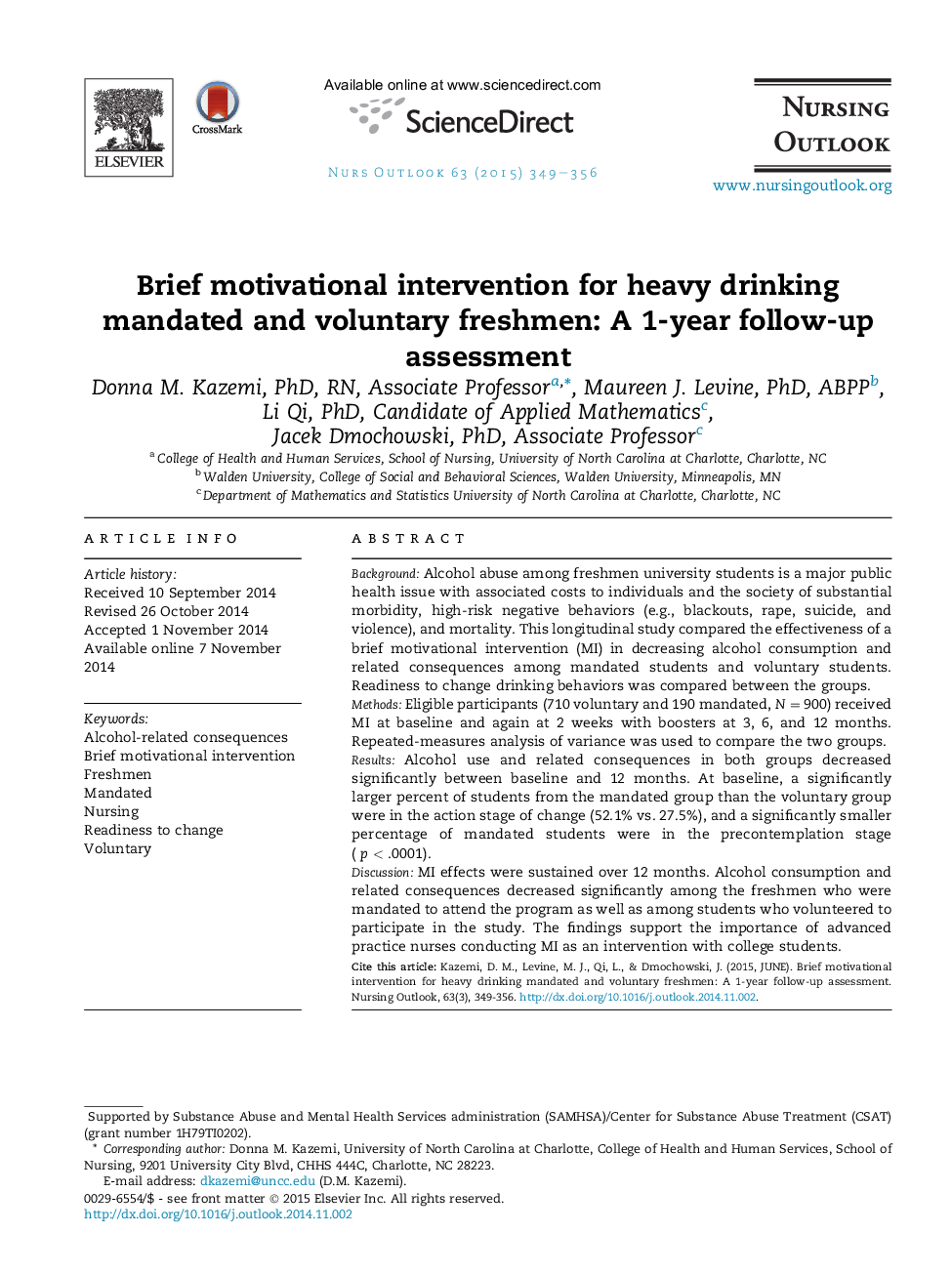| Article ID | Journal | Published Year | Pages | File Type |
|---|---|---|---|---|
| 2676881 | Nursing Outlook | 2015 | 8 Pages |
BackgroundAlcohol abuse among freshmen university students is a major public health issue with associated costs to individuals and the society of substantial morbidity, high-risk negative behaviors (e.g., blackouts, rape, suicide, and violence), and mortality. This longitudinal study compared the effectiveness of a brief motivational intervention (MI) in decreasing alcohol consumption and related consequences among mandated students and voluntary students. Readiness to change drinking behaviors was compared between the groups.MethodsEligible participants (710 voluntary and 190 mandated, N = 900) received MI at baseline and again at 2 weeks with boosters at 3, 6, and 12 months. Repeated-measures analysis of variance was used to compare the two groups.ResultsAlcohol use and related consequences in both groups decreased significantly between baseline and 12 months. At baseline, a significantly larger percent of students from the mandated group than the voluntary group were in the action stage of change (52.1% vs. 27.5%), and a significantly smaller percentage of mandated students were in the precontemplation stage (p < .0001).DiscussionMI effects were sustained over 12 months. Alcohol consumption and related consequences decreased significantly among the freshmen who were mandated to attend the program as well as among students who volunteered to participate in the study. The findings support the importance of advanced practice nurses conducting MI as an intervention with college students.
